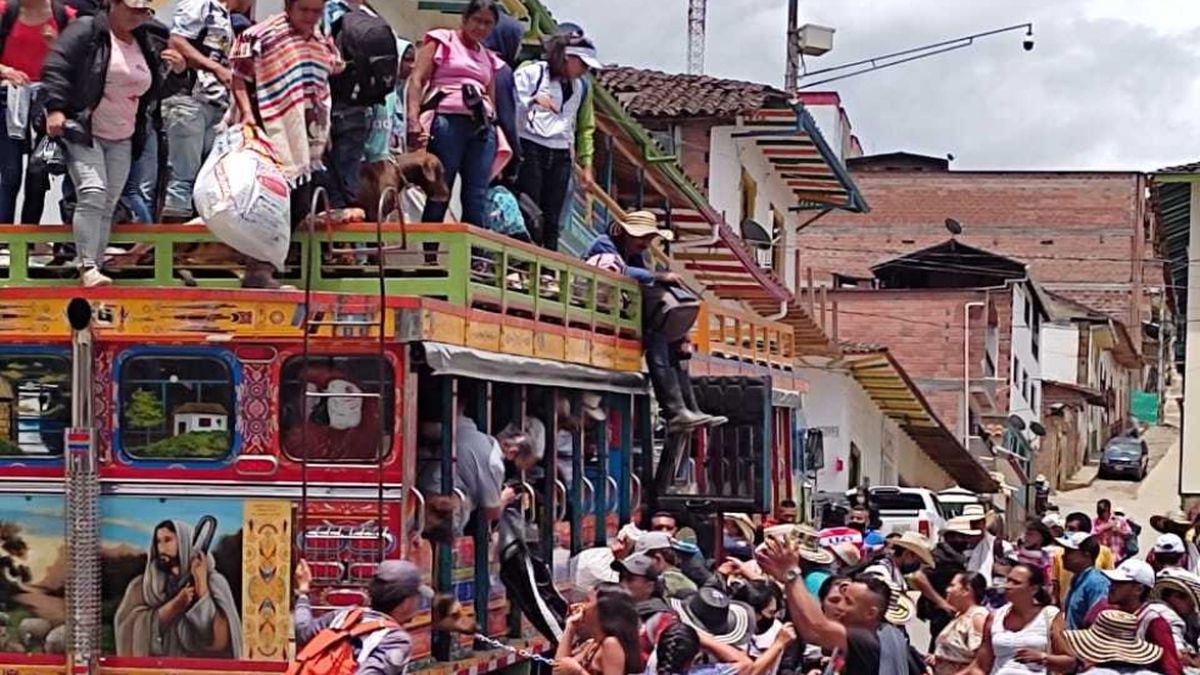Colombia: Millions forced to migrate due to conflicts, and threats from mining firms

Considerable forms of violence have been suffered by rural communities in the context of the armed conflict, one of the most serious being the forced displacement by stripping peasant communities, indigenous people, and Afro-descendants of a fundamental element of their identity and their existence: the land. This phenomenon, causing 8 million victims during the whole armed conflict, has not stopped with the signing of the Peace Agreement, on the contrary, it continues to rise.
According to the report presented in 2019 by the Internal Displacement Monitoring Centre (IDMC), the armed conflict caused about 5.6 million internally displaced persons (IDPs), but, according to the Registro Único de Víctimas (RUV ), the historic total from 1985 to 2019 is close to 8 million people.
Colombia is the second country in the world with the most forced displacements due to the conflict, only below Syria. This reflects the dimension of the wound that the violence has opened in the country, which mainly affects the inhabitants of rural areas, and among these, women and ethnic groups who usually end up [moving] to towns with precarious conditions close to misery.
According to the Office of the Inspector General, killings of people with links to land restitution processes have gradually increased since the signing of the Peace Agreement. At the same time, forced displacement is placed as the victimizing event that increased the most after the signing of the Peace Agreement.
The Special Jurisdiction for Peace (SJP) revealed in March this year a scandalous fact: every 30 minutes a Colombian is forced to leave his home to escape the conflict. This, translated into figures, represents 102 facts of forced displacement affecting 44,290 people in the first half of 2021. In the same period of 2020, 51 actions took place causing 13,912 victims, according to the Ombudsman, which indicates that the number of victims has increased 218% this year. 90% of the events have occurred in rural areas.
The most dramatic case is that of Ituango, where an exodus of 4,099 people, being forced to move due to death threats to leave the territory, has taken place. The intimidation was preceded by the increase in assassinations by the paramilitary group Autodefensas Gaitanistas de Colombia – AGC in the municipality.
This community has repeatedly suffered harassment to leave their land by economic interests aimed at exploiting the land. In fact, between 60% and 70% of the territory is open to mining-energy concessions, for example, in the exploitation of precious metals like gold, silver and platinum.
According to Isabel Cristina Zuleta from the Ríos Vivos Movement, there are coincidences between the territories where illegal groups have generated forced displacement and the areas of mining concessions where multinationals, mainly Canadian and Chinese, have interests.
This has already been seen with the Hidroituango project where, in the project’s area of influence, there have been threats, displacement and massacres. “What we know is that in Ituango there is a new threat: mining interests. There are several multinational mining companies with titles in the territory and we can foresee that the situations having relation to the stripping of the lands are in benefit of these economic interests ”.
But, as if this were not enough, this area is a natural drug trafficking route due to its location in a production area larger than that of the south-west of the country and a few high traffic and exit areas such as the Uraba region and the Caribbean coast.
The attention of the national government towards the victims of these circumstances is precarious. Often, local authorities have shelters to accommodate displaced people, but these are unsuitable places, lacking toilets, overcrowded or in unsanitary conditions. In some municipalities, shelters are empty because “families are afraid of being followed, identified, and threatened”.
Hopes of going back to homeland originated by the signing of the Peace Agreement have vanished under the Duque’s administration who has not kept his word regarding the measures of access to land contemplated in point 1 of the Agreement, nor with its obligation to provide security guarantees to communities.
